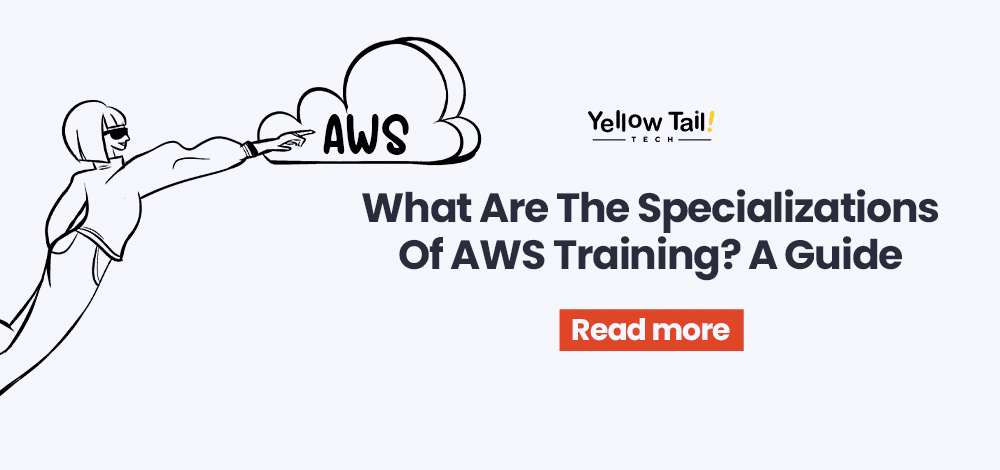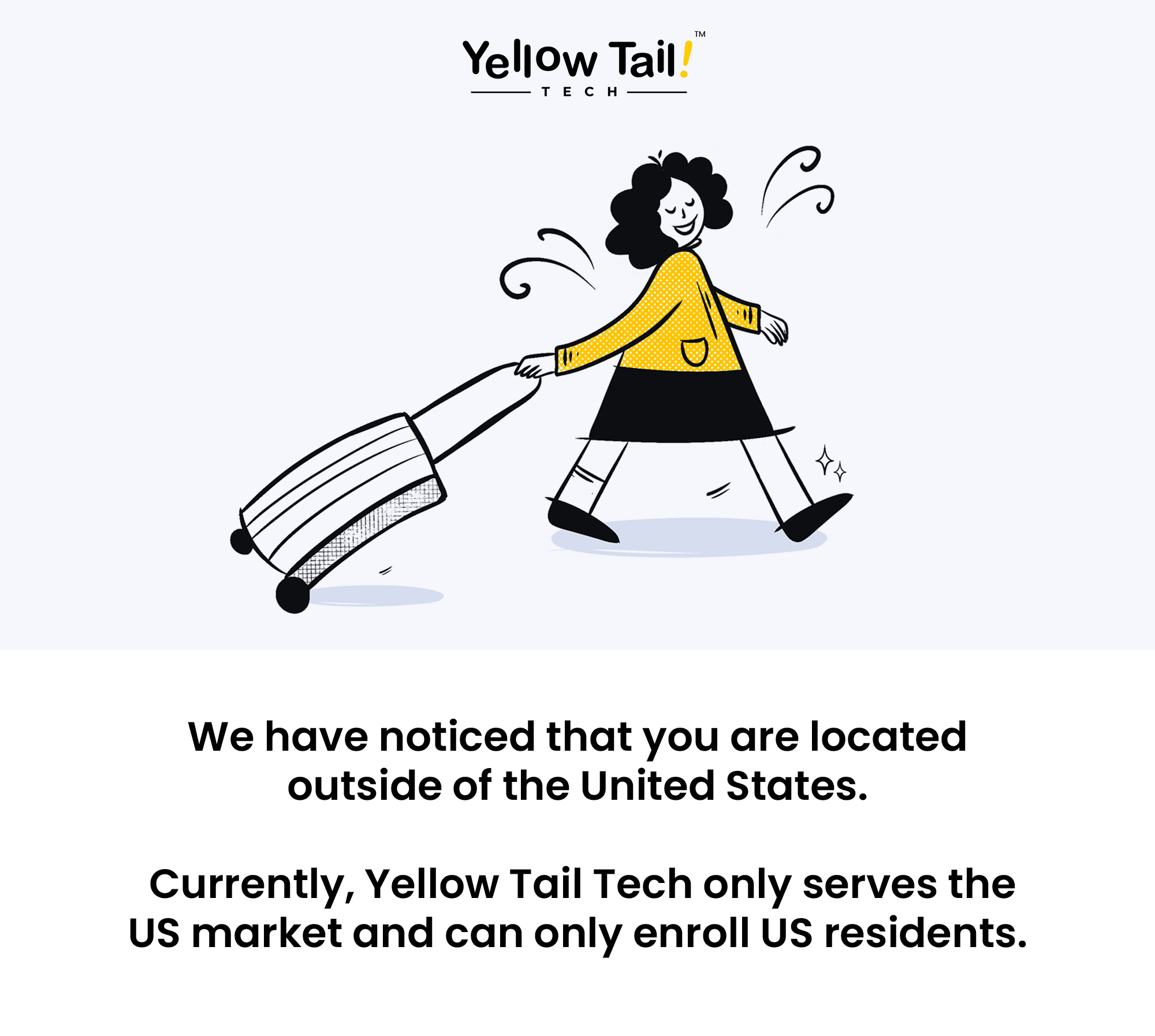More and more companies are looking to shift their workload to cloud services. AWS provides easy access to all files, applications, and dashboards, which makes it a valuable asset for tech companies. As of 2022, AWS has paved the way for widespread cloud adoption for many companies and startups. According to Gartner, AWS was recognized as the leader in Infrastructure as a Service (IaaS) for the twelfth consecutive year. In short, training for AWS has long become an industry standard. And it will continue to do so.
Why do you need AWS training? The training involves a hands-on approach to various cloud services, securities, and web development. In addition, AWS training is an industry-standard and can lead to a high-paying job in IT. Not only do you understand the concepts behind AWS, but you will also apply them to real-world scenarios.
What Is AWS Training?
AWS training is an extensive course consisting of many IT skills in demand today. It is one of the most recognizable courses where certification makes you stand out from the talent pool. You get to understand various concepts, theories, and applications so that you can manage many cloud services. Furthermore, AWS has many specializations where you can choose the best position. Having one specialization ensures you get a stable position in the IT industry.
The training comes with four separate levels, each with its recommended skill level for any candidate. These are Foundational, Associate, Professional, and Specialty. Any of these levels will help you understand how AWS works so you can streamline your workload or troubleshoot any issue in the network.
Why Are They Important?
AWS training is important because cloud services have become in demand in the field of technology. With the availability of online shopping and remote work, managing various tabs and assets in one server may require the help of many professionals. You get to manage various workloads and streamline the process to make things easier for everyone.
Specializations Of AWS Training
If you plan to study AWS, remember that it is a broad field, even for IT professionals. Some specializations may need more time and experience than others, so finding one that matches your skill level is best. It is important to have a specialization that helps you advance your career at any point. Once you earn an AWS certification, companies will look into your skillset and experience since you understand AWS.
Here are the many specializations of AWS Training, sorted by level.
- Foundational Level
- Cloud Practitioner – The Cloud Practitioner is an entry-level course made to understand the general concepts of cloud computing. You will study the fundamentals of AWS, its value proposition, and common use. Having at least six months of AWS experience before taking this course is recommended.
- Associate Level
- Solutions Architect – Associate – The Solutions Architect – Associate course is for you if you study and design distributed applications. Potential candidates should show their design abilities, management skills, and implementation using existing AWS tools.
- Developer – Associate – The Developer – Associate course teaches you how to maintain and develop AWS-based applications. A background in coding is an advantage because you will input manual codings in various softwares. You get hands-on experience in debugging, designing, and developing applications if there is any troubleshooting.
- SysOps Administrator – Associate – The SysOps Administrator – Associate course is ideal for system administrators. You get a technical and thorough understanding of operating an AWS platform. If you have experience with Windows or Linux administration, it can be a refresher course for you. You will manage AWS systems while sending and receiving data as you study.
- Professional Level
- Solutions Architect – Professional – The Solutions Architect – Professional course will evaluate and make recommendations in implementing AWS applications. It requires a high level of skill of at least two years before you can take this course. Once you take this course, you will understand cost optimization strategies and migrate systems to a multi-tier architecture design.
- DevOps Engineer – Professional – The DevOps Engineer – Professional course focuses on continuous delivery (CD) and automation. If you have experience in agile development methodology, it is a plus in this course. You will study the basics of modern CD and how you can manage its systems.
- Speciality Level
- Data Analytics – Specialty – The Data Analytics – Specialty certification is ideal for people who have a data analytics background. You get to use AWS services to design big data analytics and solutions. The areas covered include best security practices, visualizing data, and implementing AWS big data.
- Advanced Networking – Specialty – The Advanced Networking – Specialty course teaches you the hybridization of IT networking architecture at scale. If you have an advanced experience in networking, it is a plus for you. In addition, you get to optimize networks and troubleshoot any issues of the AWS cloud.
- Security – Specialty – The Security – Specialty course is ideal for internet security professionals who want to master online security management. You will study data security, data protection, and encryption. Furthermore, you will learn monitoring solutions in case of data breaches and security vulnerabilities.
There are many specializations that you can choose from in AWS. Depending on your experience, there is one for every candidate. It ranges various levels from Foundational, Associate, Professional, and Specialty. In short, you will have a thorough understanding of real-world cloud computing.
Benefits Of AWS Specialization
Once you earn at least one AWS certification, many companies will seek you after. With the demand of AWS, your experience will help the company reach better milestones.
Consider these benefits if you plan to train in AWS.
- Expand job opportunities – While having a bachelor’s degree in IT helps, an AWS specialist has more opportunities in store. The specialization gives you a chance to work in machine learning models to develop and follow their lifecycle. In addition, cloud computing comprises many AWS fundamentals, which companies look for in a candidate.
- Equip in-demand skills – AWS teaches you skills such as continuous delivery, cost optimization, and advanced networking in one system. Various companies look for companies who have this knowledge which can streamline their workloads. If you have any of these skills, you will solve many troubleshooting problems with your experience.
- Better paycheck – If you have an AWS certification, you have a better chance of getting higher pay. According to Indeed, a job-seeking platform, the salary of a cloud engineer averages $117,624 per year. Having a certification ensures you have an 80% chance to get better pay with your experience. Therefore, you get better returns and net paying salaries with your training in AWS.
There are many benefits once you specialize in AWS. You get more opportunities, higher pay, and you equip yourself with many in-demand skills. It will take time to get an AWS certification, but it will result in better days in your career.
Tips For AWS Specialization
For a broad field, it can be daunting to learn AWS. Candidates need to look and check if the specialization will benefit them. Keep in mind that the field is constantly changing, so having a certification helps you understand core concepts. Furthermore, companies look for candidates who have certifications to help them in their IT infrastructure.
Check out these tips when you specialize in AWS.
- Research on specific AWS specializations – While companies look for candidates with AWS certifications, there might be skills only found in specific specializations. Research the skills you want to invest in, and you will understand how they can help your career. Some skills may be obsolete, but having a decent knowledge of the skill is important.
- Learn key concepts – While most courses teach you the theories and knowledge of cloud computing, understanding the key concepts is an advantage. Some servers may rely on a simple command that does not need to overcomplicate the process. Therefore, you should fully understand the key concepts, you should then learn the application of these concepts in real-world situations.
- Build your knowledge – Studying for an AWS certification is essential, but building your knowledge leads to better outcomes. Candidates have various approaches to gaining knowledge, and you should make your approach possible. Since there are many concepts in AWS, you need to retain as much information as you can. In short, study for the knowledge that will help you in your IT career.
These three tips will help you understand which AWS specialization suits you best. Remember to learn key concepts and build essential knowledge so that you can streamline your workload. In the end, management and implementation are key to a successful cloud computing professional.
Study Your AWS Specialization At Yellow Tail Tech
AWS specializations give you a peek into the actual workflow of how companies manage their cloud infrastructure. With four AWS specializations, you can start anew or build more knowledge to understand how the system works. Once you earn an AWS certification in any course, companies will look after you, and you have a better chance at better job satisfaction. As a result, your IT career becomes a viable job opportunity after the learning experience.
Yellow Tail Tech is an ed-tech company that provides AWS specializations for any IT professional. We have a wide range of courses and information backed up by many industry practitioners. After studying with us, you will have a stronger and higher chance of landing a high-paying career. Book a 10-minute intro call today with IT experts!






